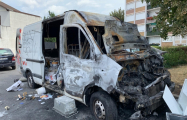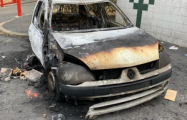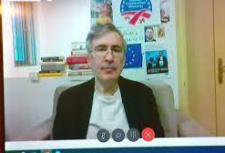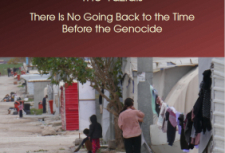Dengê defê Ji dûr ve xweş e or is honey as sweet as we are told?
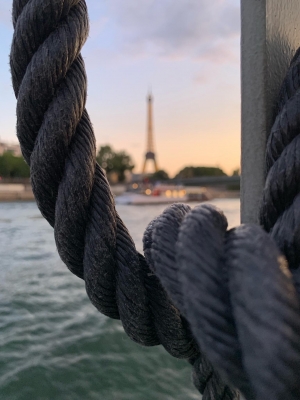
We Yazidis have a proverb "the sound of the drum from a distance is good "(dengê defê Ji dûr ve xweş e). As is known from 2006 to the present day, many Yazidis emigrated from the post-Soviet countries in search of a better life in European countries. Many had reasons for doing so: economic, political or personal. And with such hope, many people wanted to see and live this "European dream" and to this day I often hear that many want to taste this dream. And how did it all start?
In 2006-07, a migration channel was opened between European countries. The starting point was Poland, from here they went to France, Germany and other EU countries. After all the procedures, Yazidis got what they emigrated, but the question arises - is honey sweet?
During my short stay in one of these countries (France), I wanted to find and take a short interview with those Yazidis who have come all this way and find answers to questions that interested me:
1. With what motivation did they decide to emigrate
2. In what conditions they live and lived,
3. Help the Yazidis who were victims of the genocide of the public authorities?
4. Are there any organizations through which the Yazidis keep in touch with each other?
I managed to find a few families who agreed to give interviews, but asked not to specify their names.
The first family told that emigrated from Georgia because of political problems. However, who helped them in this case, they decided to keep silent. Their initial arrival was Poland country. In the camp, the family lived in Kamp with refugees from different countries, mainly from the middle East and the CIS. Conditions in the camps were acceptable, however, the Polish government did not help them and did not allocate any funds for the existence, so this decided to leave, to go further in Europe. The family moved to France, hoping that their dream of a happy life will finally come true. However, in a hearty Europe, it was again a pipe dream. They were not given any status. Europe still does not believe that there can be political oppression in Georgia. The family was refused, refused asylum, refused a dream, refused a life of safety. Then they went to Germany. There they had to go through the procedure "Azul" - it meant to live in the camps at first, and then if they pass the procedure, then distribute in any city, the choice of the city of course for the German authorities. The respondents also noted that the conditions in these camps are unsanitary. T. K. it was already 2014 in these camps already lived refugees from Syria, and they were automatically given refugee status, but, alas, not immediately, and some still have to wait and live in these conditions.
In Germany, they also did not work out. The German authorities demanded documents that would prove that they emigrated because of political problems with Georgia. Despite the fact that while living in Germany, they were able to obtain documents proving their political persecution, but they were not accepted and recommended to return to France, which they did. The family also told that they have contacts of other Yazidis and they somehow keep together not to forget their native language, traditions and religion. My question is whether there are Yazidi organizations or a community in France that would assist in helping refugees from Syria or other Yazidis. They replied that they had not, and if they had, they had not heard of them.
It is obvious that European procedures are very, very complex and full of bureaucratic red tape, but even more striking is the attitude towards migrants and living conditions. Many simply can not cope. European countries, in most cases, do not actually help refugees, give them a roof over their heads, but is it enough?
After a couple of days I was lucky and I was able to communicate with the second Yazidi family in France. As we have accepted that we are difficult, or even can't make "dirty linen in public", I also asked them not to call .
Due to economic problems, the second family also decided to emigrate to France for a new life. Similarly, They, like the previous family went first to Poland, just a couple of hours, and then friends in a taxi took them to France. At first they stayed with relatives in the city of Nevers. Then we went to Paris, where KAF they signed up for a social service that helped immigrants, it is today closed, but there are other social services that help immigrants. After these procedures and a lot of red tape with the documents, the family was given a one-room hotel room. In this room, a family of four (father, mother and two minor sons) lived for three months. "Went to bed" is how they describe their room. Then they were given a room in the hotel, there was a room a little more, in this hotel the family lived for about 10 years. At the same time, the government did not pay them anything, they were on their own. They could not work officially, they receive a work permit if there is a residence permit, the family therefore worked illegally, at their own risk. During the move, the discovery for the family was that it turned out that civil servants in France did not even know who the Yazidis were. Only after the sad events in Iraq and Syria in 2014, learned about the bitter fate of the Yezidi people. Yazidis began to come to France from Syria, the government knew what they went through, but the attitude towards them was the same as to other refugees from the CIS countries.
Later, the state a year ago 3-room apartment allocated, though it is in better condition than the hotel, but the family was in a criminal area. According to the family of the daughter-in-law, she is afraid to wear a wedding ring because on the street can attack her and steal. The streets of this area are very dirty, a week "once here burn cars".
The eldest son noted that in Paris children are immediately integrated into society, taught the language for a year, then transferred to schools. High schools and some universities taught children absolutely for free. He and his brother helped their parents working illegally, now they already have a residence permit, and at the moment the eldest of the brothers working officially as a security guard.
The younger son noted that if they knew what they would have to go through, he definitely would not want to repeat it. After all seen heard, I remembered the words of my ancestors-dengê defê Ji dûr ve xweş e.
David Babaev
Tags: #yazidisinfo #yazidi #yezidi
Dengê defê Ji dûr ve xweş e or is honey as sweet as we are told?

We Yazidis have a proverb "the sound of the drum from a distance is good "(dengê defê Ji dûr ve xweş e). As is known from 2006 to the present day, many Yazidis emigrated from the post-Soviet countries in search of a better life in European countries. Many had reasons for doing so: economic, political or personal. And with such hope, many people wanted to see and live this "European dream" and to this day I often hear that many want to taste this dream. And how did it all start?
In 2006-07, a migration channel was opened between European countries. The starting point was Poland, from here they went to France, Germany and other EU countries. After all the procedures, Yazidis got what they emigrated, but the question arises - is honey sweet?
During my short stay in one of these countries (France), I wanted to find and take a short interview with those Yazidis who have come all this way and find answers to questions that interested me:
1. With what motivation did they decide to emigrate
2. In what conditions they live and lived,
3. Help the Yazidis who were victims of the genocide of the public authorities?
4. Are there any organizations through which the Yazidis keep in touch with each other?
I managed to find a few families who agreed to give interviews, but asked not to specify their names.
The first family told that emigrated from Georgia because of political problems. However, who helped them in this case, they decided to keep silent. Their initial arrival was Poland country. In the camp, the family lived in Kamp with refugees from different countries, mainly from the middle East and the CIS. Conditions in the camps were acceptable, however, the Polish government did not help them and did not allocate any funds for the existence, so this decided to leave, to go further in Europe. The family moved to France, hoping that their dream of a happy life will finally come true. However, in a hearty Europe, it was again a pipe dream. They were not given any status. Europe still does not believe that there can be political oppression in Georgia. The family was refused, refused asylum, refused a dream, refused a life of safety. Then they went to Germany. There they had to go through the procedure "Azul" - it meant to live in the camps at first, and then if they pass the procedure, then distribute in any city, the choice of the city of course for the German authorities. The respondents also noted that the conditions in these camps are unsanitary. T. K. it was already 2014 in these camps already lived refugees from Syria, and they were automatically given refugee status, but, alas, not immediately, and some still have to wait and live in these conditions.
In Germany, they also did not work out. The German authorities demanded documents that would prove that they emigrated because of political problems with Georgia. Despite the fact that while living in Germany, they were able to obtain documents proving their political persecution, but they were not accepted and recommended to return to France, which they did. The family also told that they have contacts of other Yazidis and they somehow keep together not to forget their native language, traditions and religion. My question is whether there are Yazidi organizations or a community in France that would assist in helping refugees from Syria or other Yazidis. They replied that they had not, and if they had, they had not heard of them.
It is obvious that European procedures are very, very complex and full of bureaucratic red tape, but even more striking is the attitude towards migrants and living conditions. Many simply can not cope. European countries, in most cases, do not actually help refugees, give them a roof over their heads, but is it enough?
After a couple of days I was lucky and I was able to communicate with the second Yazidi family in France. As we have accepted that we are difficult, or even can't make "dirty linen in public", I also asked them not to call .
Due to economic problems, the second family also decided to emigrate to France for a new life. Similarly, They, like the previous family went first to Poland, just a couple of hours, and then friends in a taxi took them to France. At first they stayed with relatives in the city of Nevers. Then we went to Paris, where KAF they signed up for a social service that helped immigrants, it is today closed, but there are other social services that help immigrants. After these procedures and a lot of red tape with the documents, the family was given a one-room hotel room. In this room, a family of four (father, mother and two minor sons) lived for three months. "Went to bed" is how they describe their room. Then they were given a room in the hotel, there was a room a little more, in this hotel the family lived for about 10 years. At the same time, the government did not pay them anything, they were on their own. They could not work officially, they receive a work permit if there is a residence permit, the family therefore worked illegally, at their own risk. During the move, the discovery for the family was that it turned out that civil servants in France did not even know who the Yazidis were. Only after the sad events in Iraq and Syria in 2014, learned about the bitter fate of the Yezidi people. Yazidis began to come to France from Syria, the government knew what they went through, but the attitude towards them was the same as to other refugees from the CIS countries.
Later, the state a year ago 3-room apartment allocated, though it is in better condition than the hotel, but the family was in a criminal area. According to the family of the daughter-in-law, she is afraid to wear a wedding ring because on the street can attack her and steal. The streets of this area are very dirty, a week "once here burn cars".
The eldest son noted that in Paris children are immediately integrated into society, taught the language for a year, then transferred to schools. High schools and some universities taught children absolutely for free. He and his brother helped their parents working illegally, now they already have a residence permit, and at the moment the eldest of the brothers working officially as a security guard.
The younger son noted that if they knew what they would have to go through, he definitely would not want to repeat it. After all seen heard, I remembered the words of my ancestors-dengê defê Ji dûr ve xweş e.
David Babaev
Tags: #yazidisinfo #yazidi #yezidi

